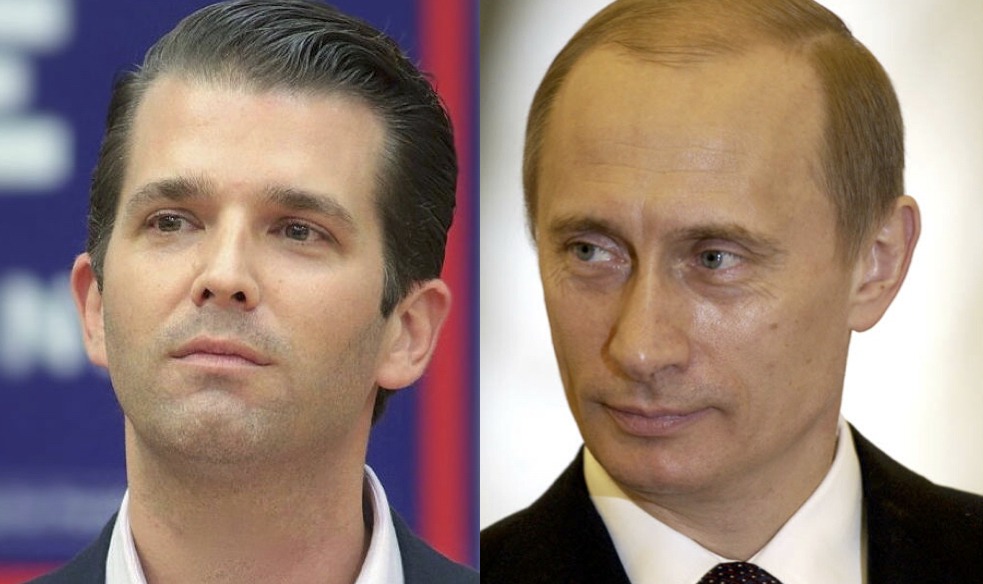What did Donald Trump know and when did he know it?

The most pivotal moment of the Watergate investigation came when Senator Howard Baker, in a quote often misattributed to Fred Thompson, asked “What did the President know and when did he know it?” The question framed the scandal with regard to Richard Nixon’s involvement. It put the burden on Nixon to demonstrate that he didn’t know his campaign was committing crimes on his behalf. He couldn’t come close to meeting that burden, and he was finished.
Now that it’s been confirmed Donald Trump Jr. met with the Kremlin during the campaign to treasonously discuss how to sabotage Hillary Clinton, it’s time to ask the same question: What did Donald Trump know and when did he know it? In a court of law, all he would need to do is create reasonable doubt that he somehow didn’t know most of his top campaign advisers, including his own son, were conspiring with the Kremlin over a prolonged stretch of the campaign. It doesn’t have to be believed, just theoretically believable. But we’re not looking at a court of law here.
There are two things that can and will destroy Donald Trump. The first is the court of public opinion. His base is no more than 15% of the country, so they’re irrelevant to his fate. His current 35%-range approval rating hinges on another 20% of the country, outside of his base, who’s still tentatively standing by him despite never having been enamored with him. If Trump can’t convince the 20% that he didn’t know his son was engaging in treason with Russia, enough of them will abandon him that his approval rating will fall to toxically unpopular levels. Anything under thirty percent, and the the flashing red lights will go off across the political aisle.
And that’s the point at which a reluctant Republican Congress might feel compelled to finally move forward with the impeachment of a President of its own party, if only to try to save itself from getting wiped out in the midterms. The outcome of impeachment is at the whim of Congress, not the hard and fast rules of a courtroom. So it now falls solely on Donald Trump to convince his tentative supporters outside of his base that he really didn’t know what Junior and his advisers were up to. Short of that, he’ll be finished. And if the Republican Party won’t impeach him before the midterms, the Democratic Party will win a majority and then take care of impeachment. If you’re a regular reader, feel free to support Palmer Report
